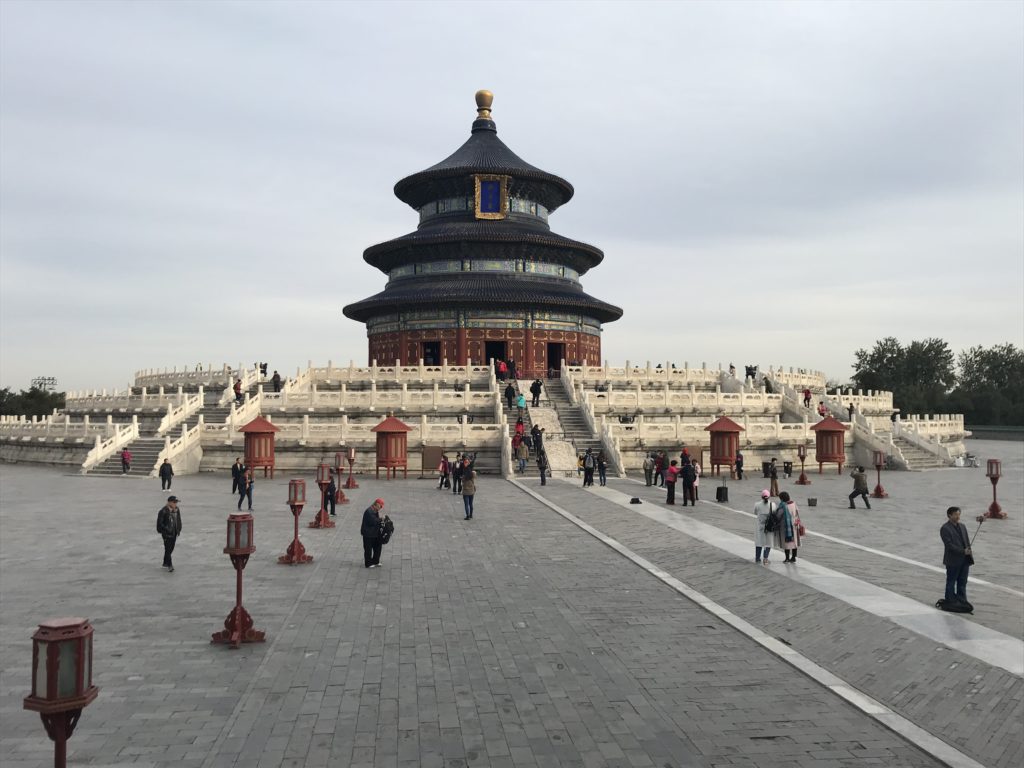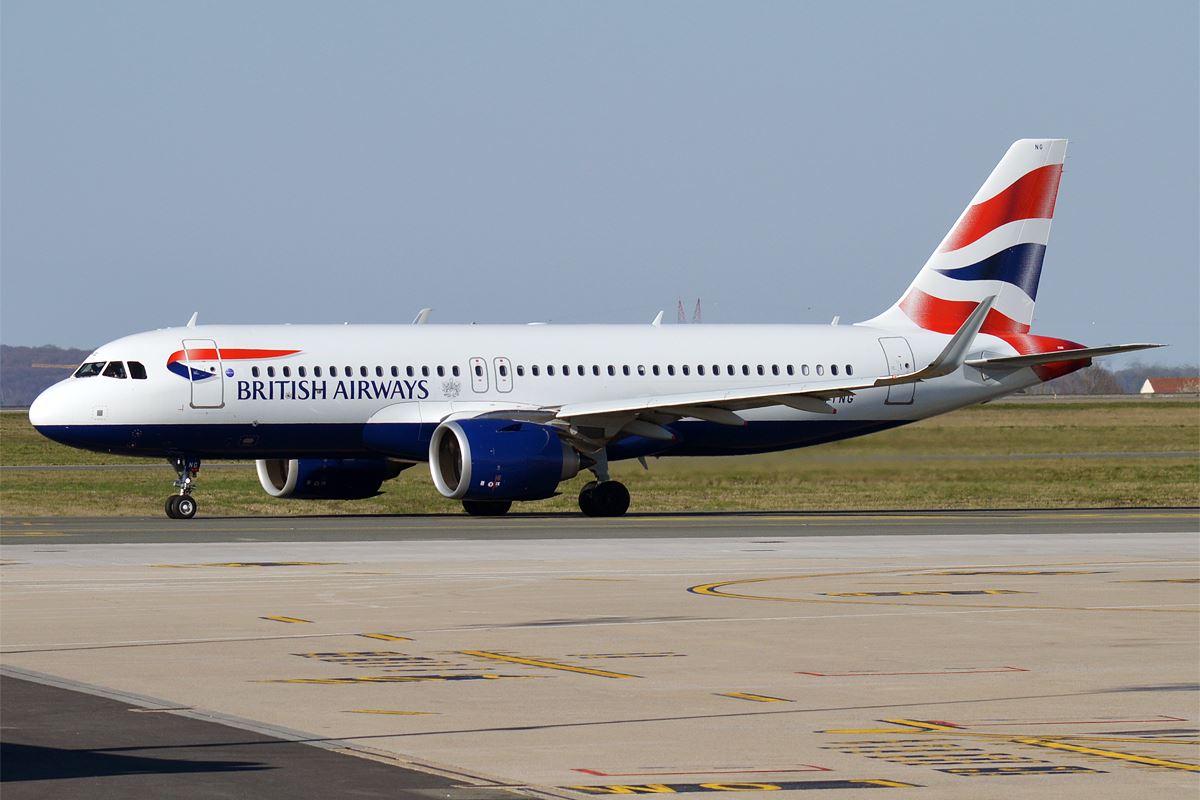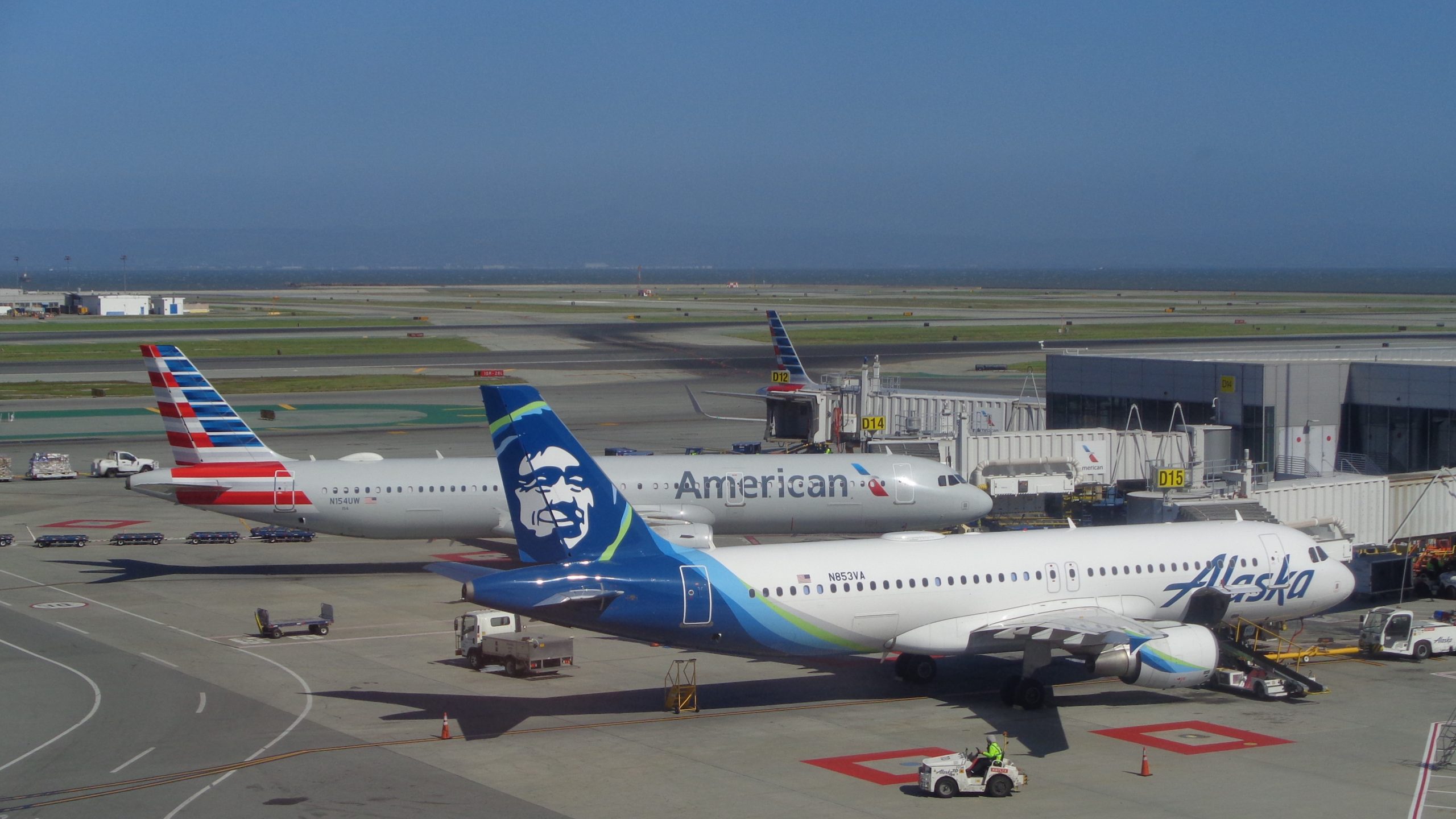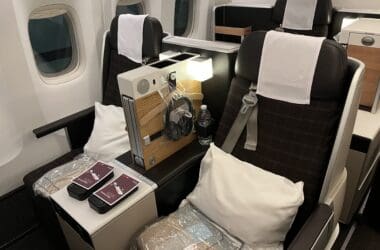I thought I’d begin a short series of posts about the travel privileges that we enjoy as Americans. Some may be obvious to you, others will likely be less so. But it’s good to remember just how blessed we are in so many ways when it comes to international travel. The first tackles what a privilege speaking English is as an international traveler.
As the taxi driver pulled up to the Hyatt Regency Xiamen Wuyuanwan, I thought about what I needed to ask him. We hadn’t settled on a price before pulling away from the Gulangyu ferry terminal. I knew the damage wouldn’t be that bad, given how inexpensive Chinese taxis are. But we’d sat in near-silence the whole time, listening to the sound of the rain on the car roof and the tires tracing down the soaked streets.
I know basically zero Chinese. Numbers are the one thing I can sometimes manage. I hoped in this case that I’d understand his response when I asked what the fare would be. Not even able to form the question, I just blurted out in English: how much?
Whatever his reply was, I didn’t catch it. It was something-ten. But how many tens did he want??? I asked again. The response was the same, but slightly more irritated. He made a motion with his hand as well. I should have brushed up more on Chinese number hand gestures, too. Now you’re 0 for 2, Ian.
Finally, We Communicate
The third time was the charm, and I finally caught bā, the Chinese word for “eight”. He wanted eighty yuan. Steep, but about what I’d expected. I probably could have argued and offered him fifty, but I could easily spare 30 yuan (~$3.50 USD).
I plunked the bills in his hand, and all I got was “oh my God” in response. Well. My inability to speak or understand Chinese was certainly not lost on him. Guess I better practice a whole lot more before we decide to visit another Chinese second city. Our whole day in Xiamen had been a struggle. I’d never felt so hopelessly unable to communicate. I can speak decent Spanish and can blunder through French and Italian. But Chinese is different.
Then it hit me: this is the reality of so many other people who travel the globe.
Travel Privilege: Speaking English as Your Native Language
Our time in Xiamen taught me to never again take being a native English-speaker for granted. We’d done fine just several months prior when visiting Beijing and Hong Kong. There are just enough people in China’s capital who speak a little English that I could find someone who could answer a critical question. In Hong Kong, there are even more people who speak my tongue. We had frustrating moments, but generally we were able to manage just fine.
Even this was a couple notches more difficult than any experience I’ve had in Europe. In France, Italy and Spain, finding someone who speaks English is generally easy. Even if you can’t, at least the written language uses the same letters, and piecing together the meanings of signs and inscriptions is possible if you understand that basic Latin roots.
Being fluent in English as a traveler is definitely a privilege. Americans traveling abroad can usually get by without learning the local language. You get so used to people understanding you in Europe that you come to expect that they will. Not being able to communicate becomes frustrating.
In Xiamen I was up a creek and without a paddle. My ability to converse in the most common international language of the world was suddenly no help, and I was more than frustrated. I’d taken it for granted that I’d find someone who could speak English, but that proved nearly impossible in Xiamen.
Should people have to cater to English speakers? Certainly not. But it’s definitely the way things are. I just see now how much more of a privilege speaking English is.
Hei, and Muchas Gracias
Two other recent moments illustrated how privileged I am as a globetrotting native English-speaker. The first was my entire experience exploring Helsinki, Finland for two days. Before I arrived, I did a bit of research on Finland, and one of the things that stood out to me was how many Finns make a point of learning English. I knew I’d probably have an easy time without knowing any Finnish except for hei (hello). And of course sauna, but that is the one Finnish word we’ve borrowed.
Well, easy is an understatement. I met a grand total of one Finn who struggled to understand me. Most of those I interacted with spoke excellent English. A few would start in Finnish, but upon realizing I couldn’t understand a word they’d said, instantly switched to English. It was seamless.
And they never had any expectation that I would know a bit of Finnish. I am spoiled visiting Finland as an American. There’s literally no need to worry about the language barrier.
The second situation happened just a few weeks later when I made a crazy trek back to Europe to Barcelona for two nights. During my whirlwind visit of this lovely city, I was approached by two Chinese tourists. This in itself wasn’t odd. I’d seen several Chinese tour groups already. What was strange was that the couple appeared to be traveling by themselves, something I really hadn’t seen.
The man launched into some rudimentary Spanish, asking me to buy them metro tickets. It was a difficult conversation. He was lucky that I am conversant in Spanish. I finally understood he wanted a ten-trip ticket. I helped him purchase it and then did my best to explain the little I knew about the Barcelona metro.
The image of the man bowing slightly, hands together, thanking me with very thickly-accented “muchas gracias” will forever be imprinted in my memory. It left me realizing how much the world caters to me and not to them. I didn’t check to see if the metro kiosks offer a Chinese language option. They certainly offer English. This is yet another thing I expect traveling internationally: that important announcement and signs will be in English.
Will English Always Be Dominant?
While the world may currently cater to those who speak English, the de facto language of business, there could be a shift over the next several decades.
Let’s use my recent flight with Finnair as a example. It might surprise you that a substantial percentage of Finnair’s customers are neither Finnish nor English-speaking. Many are east Asian, coming primarily from China and Japan, which Finnair serves admirably well. The Nordic flag carrier has done their best to position Helsinki Vantaa as the gateway into Europe.
There must have been several dozen Chinese passengers on the flight, undoubtedly a tour group (or multiple tour groups). I sat next to a Chinese couple. There was a Chinese couple in the row ahead of me, and the one across from me.
While on the flight I interacted with one lady, insisting that she use the next available lav before I did. She thanked me. In Chinese. Xiè xiè is one of the few expressions I understand.
In that moment it hit me how critical group tours are for some travelers. The language issue is likely a primary reason you see so many Chinese groups. It’s doubtful many of those on my flight spoke any English, let alone Spanish. Yet they were all traveling to Barcelona!
The Asian travel market is a massive one, and I will not be surprised if we start to see a shift in the degree to which some destinations will cater to them. Thanks to British imperialism during the past centuries, English was introduced to so many other countries. With the economic and political dominance of the English-speaking world, it’s no surprise our language is the most common one learned as a second language.
But there are still more Chinese-speakers than English-speakers in the world. And now they are starting to travel. Chinese tourists spend 28 times what they did on overseas travel just two decades ago. It makes you wonder if Chinese will be the new English in 50 years.
Final Thoughts
But I’ve digressed a bit. I’ve also probably penned too many examples at this point. The heart of what I’m getting at is this: you, if you are reading this as a native English-speaker, have an incredible travel privilege. Absolutely make good use of it. But don’t take it for granted.
Here are some things I consider important when it comes to language when traveling:
- Learn some of the local language before you travel to a new destination. It will show those you’re visiting that you are at least trying, and it helps connect you with the culture. Language is hard. I get it. But make the effort.
- Don’t assume people will be able to understand you or expect them to cater to you as an English-speaker. This is far too easy to do in Europe!
- If you encounter people struggling with English in America, be patient. Realize that this is you when you travel abroad. We just unfortunately aren’t as accommodating as many other countries.
- Study at least one language with an intent to master it. I found that learning Spanish over the past several years not only opened up a whole host of countries to easily enjoy without hassle, but it gave me a keen appreciation for anyone who learns English abroad. Europeans who know 4 or 5 (or 10) languages may or may not make me a bit envious.
- I already said it, but it bears repeating: learn some of the local language before you travel!
I’ve done my best to do this. Finland is a recent notable exception. Sure, I’ve been laughed at a few times when trying to speak the local language. But don’t let this deter you. Make the effort!
You’re just lucky that you can always fall back to English. Just understand what a travel privilege speaking English is.

















FLLDMFM
Thanks for this post. I’ve come to resent English a lot over the years because of how dominant it is and the total lack of awareness of privilege in many of its speakers. Like you point out, that English is more or less the universal language is because of imperialism, not because it’s better than other languages.
It’s not just an advantage when it comes to traveling, it’s an advantage when it comes to business as well and when it comes to the internet.
You can just write what you want and a huge portion of the world will understand you.
People with other primary languages first have to translate their thoughts internally and perhaps look up words. It doesn’t come of as eloquent and effortless. It’s draining.
Have you tried to talk a second language beyond pleasantries? It’s really exhausting.
Much of internet is debate and talking philosophy and different theories in a language that isn’t your own primary one, your mind is busy searching the right words while a natural English speaker can use their minds instead to just better their arguments.
There are so many YouTubers and other native English speakers online who use their privilege ( that they themselves are not even aware of ) to mock and ridicule others broken English. They nitpick, they pretend to not understand grammatical errors or make long skits about how hiiiilaaarious the mistake is, they laugh at make fun of pronunciation and accents because broken English is worthy of ridicule in their opinion. They themselves can’t pronounce foreign names, but that is also ok because foreigners are dumb and irrelevant anyway so no need to.
It makes me hope that the languages of the future will be Mandarin, Hindi and Arabic. So that all English speakers can get a feel of what it’s like and eat some well deserved humble pie.
Even Europeans are privileged in a sense when it comes to sharing the same writing system and especially the ones with Indo European language roots because of similar grammatical structures with English.
Also, if I want to learn Hindi for example, I have to know English first because all the available textbooks and learning materials available are in English. There are no books or online resources in my native language.
Imagine if you had to learn German first to be able to access learning Spanish. To know the Spanish word for frog you must first be familiar with the German word for it. This makes you further removed from the language you’re learning.
Past imperialism has certainly made English dominant, that’s for sure. It is a privilege to be a native speaker. After learning Spanish and going through the (mild) ridicule and embarrassment at times, I definitely don’t laugh at those trying to learn.
Every language (aside from Spanish) for me beyond simple words *is* truly exhausting. If I had to speak in Spanish beyond simple conversations, the latter would be exhausting as well. Having to write well in Spanish? That would be hard. My command of the language is not excellent enough for quality writing. I hadn’t thought about that point, and it is a good one for those with ESL.
Really enjoyed this post. It’s a subject I’ve often thought about. I travel often, I’m 6′ tall, blonde and reasonably attractive. I’m a female and always dress well. I learn a few phrases of the language of any country I visit (except China of course). I am never treated badly. But I never take my luck for granted, either. I’m grateful for all my positive travel experiences. A thought-provoking post for sure.
Thanks so much for reading!!
This is a great perspective. As you correctly alluded to, the country or culture that has financial or military power often exerts its cultural and political power. Very often, you’ll see hard power followed by strong soft power as well. While hard power has its limitations, soft power doesn’t.
Well if only all countries focused on soft and not hard power, the world would be a much better place, but that’s too utopian a world to assume. As you correctly pointed out, we may slowly see a resurgence of native languages and cultures around the world as the colonial influence gradually wanes.
I sure hope so! Not that I have anything against the English-speaking world, haha. It’s a privilege to know English, but experiencing new places always makes me want to learn some of the language. I’ve never thought of things as soft vs. hard power, but that makes a lot of sense. We export *so* many things (music, film, style, etc.) to other nations.
Travel broadens your perspective so much. It is such a privilege and a gift.
As a kid, I traveled quite a bit around India. The language, culture and often changed often after driving for just 100 miles. So language and culture are something that I’ve been very curious about. I can often feel as a ‘foreigner’ every time I visit India depending on which state I’m going to. However, growing up in abundant diversity has made it easier for me to appreciate the diversity I see in the world.
As you correctly said, travel broadens your perspective. Irrespective of language, religion or culture, we should all try to tap into the fundamental goodness that drives people around the world to help each other. 🙂